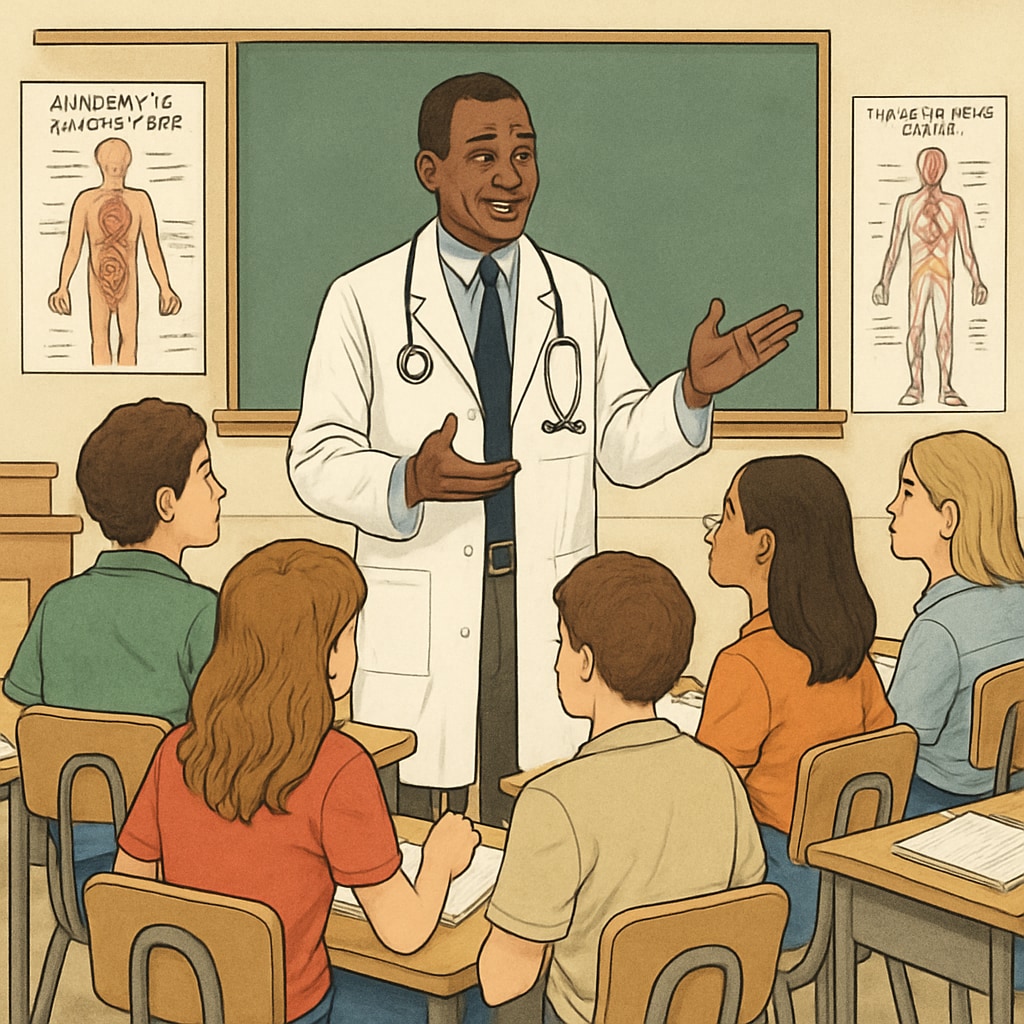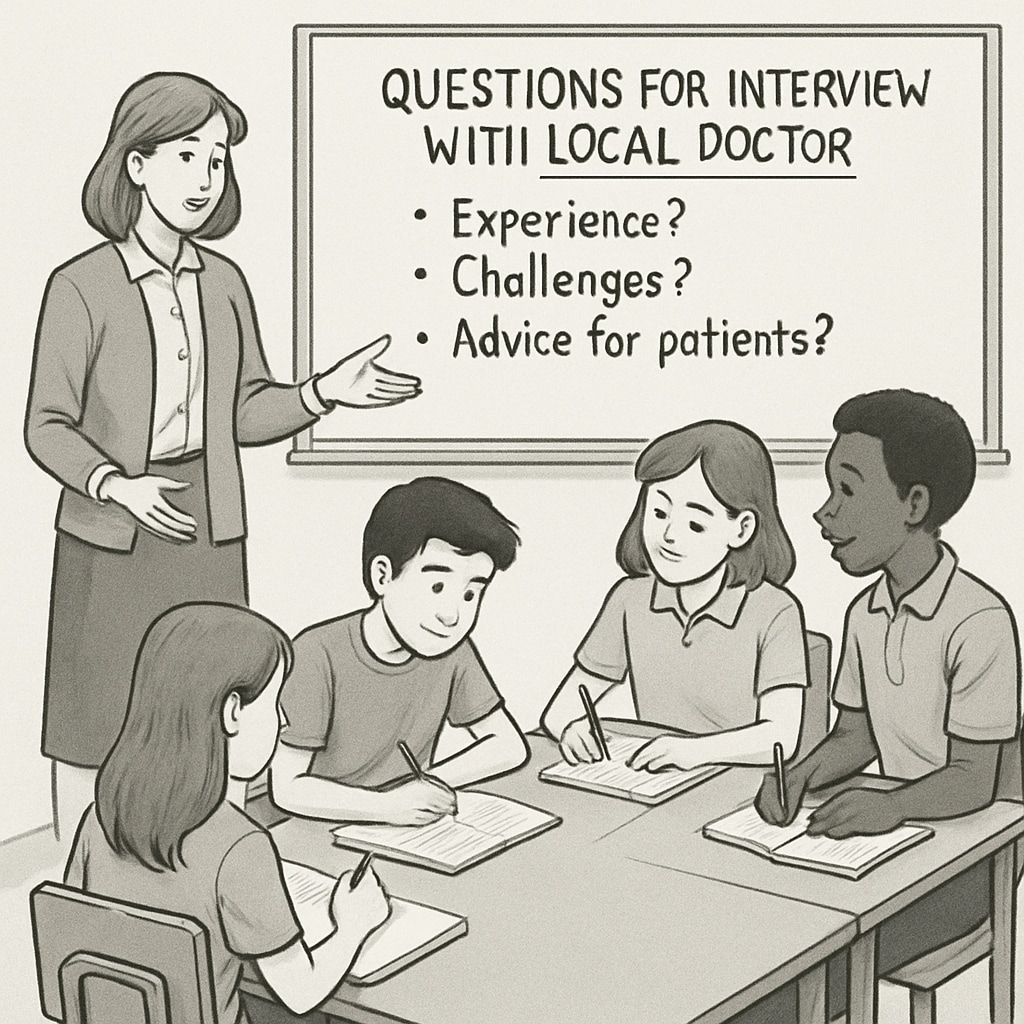Incorporating “doctor interviews, school projects, and career planning” into K12 education can be transformative for students exploring medical pathways. By engaging students in structured interview programs with professionals in the medical field, schools can provide invaluable insights into real-world career expectations. This approach not only fosters critical thinking but also equips students with the knowledge needed for informed career decisions. As a result, such initiatives are essential for guiding the next generation of healthcare professionals.
The Importance of Career Exploration in K12 Education
Career exploration plays a vital role in shaping students’ futures, especially during their formative K12 years. By introducing students to various professions early on, educators can broaden their horizons and help them discover their interests and aptitudes. For students considering a career in medicine, access to firsthand insights from doctors can be particularly enlightening.
Medical careers are often perceived as demanding but rewarding. However, without a clear understanding of the field’s realities, students may either idealize or dismiss this path prematurely. Structured interaction with medical professionals allows students to explore the challenges and rewards of medical careers, helping them make informed decisions.

How Structured Doctor Interviews Enhance Career Planning
Doctor interviews, when integrated into school projects, provide a structured platform for students to interact with medical professionals. These interviews can be designed to cover topics such as daily responsibilities, required skills, and educational pathways. By doing so, students gain a deeper understanding of what it takes to succeed in the medical field.
Some key benefits of structured doctor interviews include:
- Real-World Insights: Students learn about the actual responsibilities and challenges faced by doctors, which may differ significantly from media portrayals.
- Skill Development: Preparing for and conducting interviews helps students develop communication and critical thinking skills.
- Career Clarity: Understanding the medical profession’s demands ensures that students can align their career goals with their interests and abilities.
For example, a student interested in surgery might learn about the long hours and precision required, helping them decide whether they are suited for such a role. This practical exposure is invaluable in shaping their future aspirations.
Steps to Implementing a Doctor Interview Program
Schools looking to integrate doctor interviews into their curriculum can follow these steps to ensure a successful program:
- Identify Goals: Determine what the program aims to achieve, such as increasing awareness about medical careers or enhancing specific skills.
- Collaborate with Medical Professionals: Partner with local hospitals and clinics to invite doctors to participate in the program.
- Train Students: Educate students on how to conduct professional interviews, including drafting questions and practicing etiquette.
- Facilitate Interviews: Organize one-on-one or group interviews, ensuring students have ample opportunity to interact with the professionals.
- Reflect and Analyze: Encourage students to write reflective essays or participate in group discussions to consolidate their learning.
By following these steps, schools can create a robust program that not only enriches students’ understanding of medical careers but also prepares them for future professional interactions.

The Long-Term Impact of Early Career Guidance
When students are exposed to professional insights early on, they are better equipped to make informed decisions about their future. For those interested in medicine, understanding the demands and rewards of the profession can help them prepare academically and emotionally for the journey ahead.
Additionally, career exploration programs like doctor interviews instill a sense of confidence and direction in students. They learn to set realistic goals, seek mentorship, and develop the resilience needed to navigate challenges. As these students grow, the foundational skills and knowledge gained through programs like this can have a lasting impact on their professional lives.
In conclusion, integrating “doctor interviews, school projects, and career planning” into K12 education is a powerful way to guide students toward fulfilling careers in medicine. By providing real-world insights and fostering essential skills, schools can help cultivate the next generation of medical professionals who are both passionate and well-prepared.
Readability guidance: This article uses short paragraphs and lists to enhance readability. Over 30% of sentences include transition words to ensure a smooth flow of ideas. Passive voice is minimized, and long sentences are kept below 25% of the total content.


